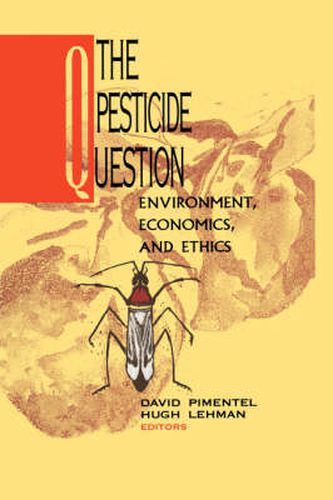This title is printed to order. This book may have been self-published. If so, we cannot guarantee the quality of the content. In the main most books will have gone through the editing process however some may not. We therefore suggest that you be aware of this before ordering this book. If in doubt check either the author or publisher’s details as we are unable to accept any returns unless they are faulty. Please contact us if you have any questions.
Pesticides have contributed impressively to our present-day agricultural productivity, but at the same time they are at the centre of serious concerns about safety, health and the environment. Increasingly, the public wonders whether the benefits of pesticides - the perfect red apple - outweigh the costs of environmental pollution, human illness, and the destruction of animals and our habitat . Scientists and government officials are suspected of promoting commercial interests rather than protecting human welfare. This volume is the result of more than a year’s study by leading scientists and policy experts who address the environmental, economic, ethical and health issues related to pesticides. In examining the social policies related to pesticide use, they consider the risks as well as the benefits. They show that to regain public trust, those who regulate and use pesticides must examine fair ethical questions and take appropriate action to protect public welfare, health and the environment. Anyone concerned with reducing our reliance on chemical pesticides and with how human activities can remain both productive and environmentally sound should find this volume of interest in a troubling debate. This book should be of interest to ecologists and environmentalists.





